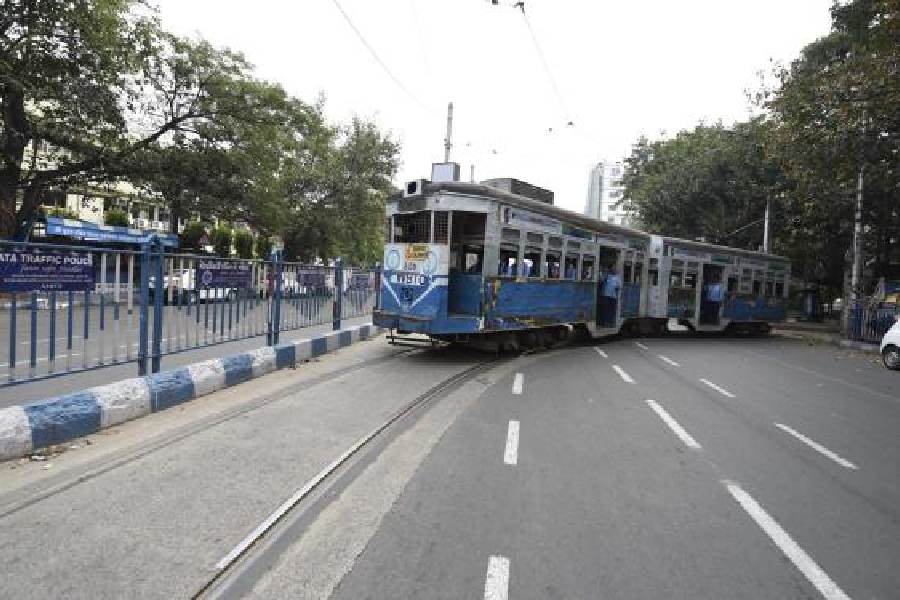The division bench of Calcutta High Court headed by Chief Justice T.S. Sivagnanam on Wednesday spoke about the need to preserve Kolkata’s trams and directed the state to set up within three weeks an “expert committee” for the preservation of the “heritage transport”.
The court has barred the Calcutta Tramways Company from selling any property till further orders.
The state government has been told to include a representative each of an NGO and the state heritage commission in the committee.
The state has to inform the court about the developments on the issue after three weeks.
“It is very easy to close down a heritage transport. But considering the sentiments of the people of the city, the state should try its best to preserve the pollution-free transport system,” the Chief Justice said during Wednesday’s hearing.
A formal written order of the bench had not been uploaded on the high court’s website till late on Wednesday evening.
The order came while the bench was hearing a public interest litigation by Sulagna Mukherjee, an advocate.
“The state should take lessons from the way the toy train in Darjeeling has been preserved. Trams can also be a profitable transport system of the state,” the Chief Justice said in the court.
Snehasis Chakraborty, Bengal’s transport minister, had said in February that trams would run on “four or five routes” and “it would not be possible” to run them on all routes like before.
“Our government does not want to shut down trams but, at the same time, it is not possible to run trams on all routes. Trams will run on four or five routes,” Chakraborty had said.
“Kolkata has very little road space. It is not possible to run trams on all routes. Roads are narrow in many places.”
This year marks the 150th birth anniversary of Kolkata’s trams.
The petition heard on Wednesday mentioned that it was unfortunate that thestate has decided to pull out trams and gradually sell the properties belonging to the Calcutta Tramways Company (CTC).
The lawyer appearing for the petitioner said, citing a response to queries under the Right to Information (RTI) Act, that 116.62km of tram tracks still exist in the city. But trams only run on 33km of those tracks.
“There were six big tram depots in the city. Of the bigger ones, two are functional. The landed properties of most other depots have been sold to private parties. Housing complexes are being built there,” the lawyer said.
“The tramways’ properties should also be preserved,” the petition said.
Appearing for the state, advocate general S.N. Mookherjee said: “The state is also trying to maintain the heritage transport.”
Trams now run on three routes — 5 (Shyambazar-Esplanade), 25 (Ballygunge-Esplanade) and 24/29 (Ballygunge-Tollygunge) — said Sagnik Gupta, a member of Calcutta Tram Users Association, a group of Kolkatans fighting the move to reduce the use of trams in the city.
“Even in 2017, there were more than 25 operational routes,” Gupta told The Telegraph on Wednesday evening.
The high court had in May asked the state government to stop pouring bitumen over tram tracks and inform the court whether it had any policy for preserving trams. The court issued the directions while hearing a petition by the non-government organisation PUBLIC.
“We had demanded that the state form an expert committee and look at trams from a strategic point of view. Trams should be looked at as a long-term public transport option. Trams need to be modernised and expanded,” said Pradeep Kakkar, a founder member of PUBLIC.
